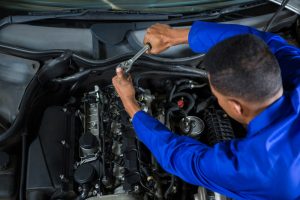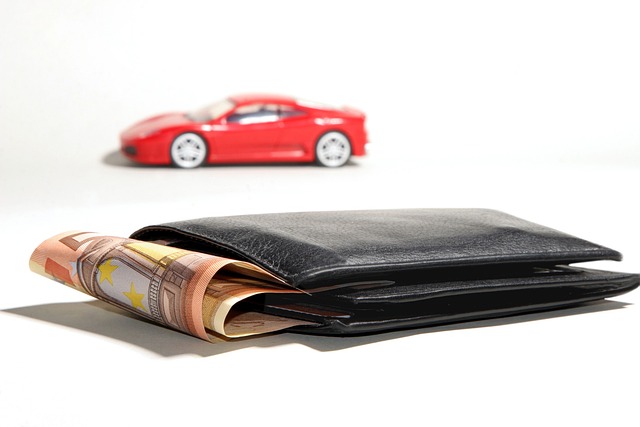7 Things To Consider When Buying A Car In Kenya: Hacks You Need to Know Now
Buying a car is a big deal especially if it is your first car. It’s almost like a mark of independence and a declaration of status. The bigger and more luxurious the car looks, the more attention it attracts as a symbol of your status in society. Before you buy your car, there are a few things you need to keep in mind.
This quick guide is designed to help ease your first car purchase and minimize the uncertainty involved in this process – both for someone looking to buy their first car and for someone looking to switch to a different car. Lastly, we’ll give you a tip on how you can avoid scammers.
1. Determine your budget.
Setting up a budget is the first step in any purchase. In buying a car, coming up with a budget will help you narrow down to the specific type of car or model you can afford.
You should first know your monthly expenses such as rent, utilities, school payments, and any other fixed household expenses.
Secondly, set the maximum amount that you can afford to spend on a vehicle. This may seem obvious, but if you don’t know how much money is available for this purchase, it will be hard to make smart decisions when looking at cars that might be out of your price range.
Make sure to account for additional monthly costs like insurance and maintenance fees.
It is also important to know what financing options are available to you. You may find that a loan is a good idea. There are many lenders issuing car finance loans at different interest rates, so make sure you do your research to determine the most favorable one.
we will talk about different financing options later after you have picked your dream car.
2. Picking a suitable car

When picking a car that suits your needs there are three points to consider:
- 1. Pick a car that is within your budget: If buying on financing, you will likely be paying for this vehicle for a few years, so make sure you have enough money to buy it and some extra for any repairs or maintenance that might be needed in the future.
- 2. A car that is in good condition. It’s important to ensure the car won’t break down on you while driving, especially if it’s an older model with higher mileage on it—you don’t want to end up stranded on the side of the road with no way home!
- 3. Pick a car that is reliable. There are many different factors that go into determining whether a car will be reliable when driving long distances (how often it needs oil changes).
3. Get a mechanic to help you inspect the car.

One of the best ways to ensure you don’t end up with a lemon is to have a mechanic inspect the car before you buy it.
A professional will be able to tell you everything; from how well maintained it has been, to whether or not any problems need immediate attention. They’ll also be able to give you an idea of how much work needs to be done on more minor issues, including:
- 1. Engine and transmission health
- 2. Brakes and suspension (are there any grinding when braking?)
- 3. Tires (old tires can leave marks on new cars)
- 4. Lights (including high beams, taillights, and brake lights)
- 5. Body damage/rust spots/cracks in paint
4. Do a test drive
Before making any decisions about the vehicle you want to buy, inspect it thoroughly and do a test drive. If necessary, take someone with some mechanical knowledge along so that they can answer questions about specific problems that may see during their inspection process (this makes sure there aren’t any surprises when you get home).
Test driving is the time to get a sense of how the car feels. You have the salesperson with you, so this is the perfect opportunity to ask about features and capabilities that are important to you. You should do this whether or not you’re planning to buy from that dealer.
If possible, test drive your vehicle during different conditions such as in traffic, or at night and also on different roads like tarmac and murram roads.
Pay close attention to the engine noise or vibrations, listen to the rattles, and be aware of excessive smoke when starting or driving the vehicle. The steering should be smooth and responsive.
After you are satisfied with the status of the car, it might be time to look for a cost-effective way to purchase the vehicle.
5. Find a suitable financing option that works best for you
Buying a car is expensive, it, therefore, needs some planning. Figure out which financing option works best for you. Make sure that whether you are buying cash or taking a car loan, you will be able to cover the cost of the car and leave enough money left over to pay your other monthly bills.
The simplest way to own a car is by paying cash. If you can pay the whole price of the vehicle outright, then the car ownership is transferred to you immediately. However, paying in cash requires extended periods of saving to come up with enough money to buy the car.

Another option for owning a car is through car financing or an auto loan. Here you will have to pay partly, while the financial provider/institution pays the remaining amount. The car will be co-owned by you and the financial institution as you pay back the loan in monthly installments.
Microfinance institutions and lenders offer auto loans of up to 80% of the value of the car. Many new car owners choose this option due to the convenience of paying small amounts monthly while still using their car. Institutions such as Ngao Credit offer up to Kes 5,000,000 as auto loans.
Always choose a financial partner that offers affordable loans by checking the monthly payments and length of payment. Car loan terms generally range from 24 to 60 months. Note that the longer the loan term, the smaller the amount you will pay in monthly installments but the higher the interest over time.
6. Beware of conmen
When you’re buying a car, there’s no substitute for physically seeing the vehicle, verifying it, and negotiating the price yourself. In Kenya to help protect against con artists, once you have settled on a car, the next best step is to check the owner of the car and ensure you are dealing with the right person.
7. Critical searches you must do before purchasing a car
To verify ownership of the vehicle you should conduct a search on the NTSA Tims portal (National Transport & Safety Authority). Using the vehicles registration number (number plates) you can find out:
- 1. Name of the owner
- 2. Make of the vehicle
- 3. Year of manufacture
- 4. Engine Capacity
- 5. Vehicle Body Type
- 6. Color of the vehicle
- 7. Registered Logbook Number
- 8. The registered Engine Number
- 9. Registered Chassis Number
You can also search for the vehicle on the Kenya Bureau of Standards (KEBS) portal to find the mileage of the vehicle. Using the VIN number, you will be able to determine whether the mileage has been changed by tampering with the odometer.
A KRA Customs duty search will also save you from unscrupulous sellers. You can check on the KRA website public notice to find if the car you are buying is listed for verification of importation documents. If it is possible, ask the seller to prove they have any of the following documents
- 1. QISJ issued by KEBS
- 2. Import Declaration Form and payment slip
- 3. Duty Entry Form and payment slip
- 4. Bill of lading
Especially if the seller is the first owner of the vehicle or a motor vehicle dealership.
Conclusion
Buying your first car is an exciting milestone. It’s a symbol of greater freedom and a necessary mode of transport. However, it is important to always be vigilant to ensure that you don’t fall into a trap of fraudsters and con artists looking to get your hard-earned cash.


